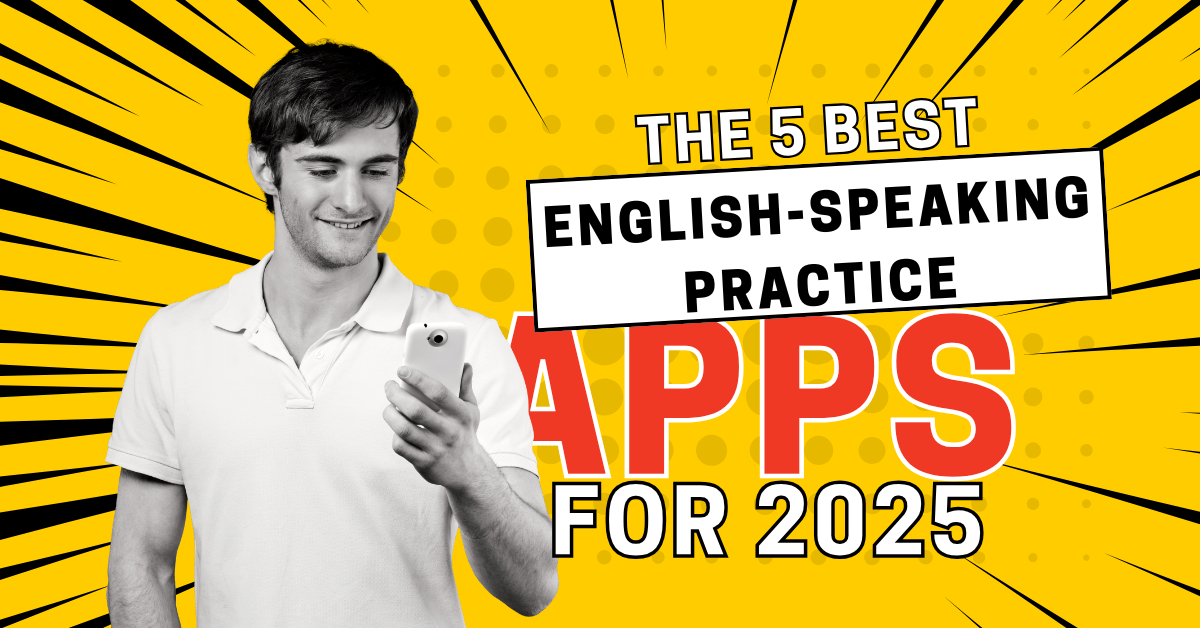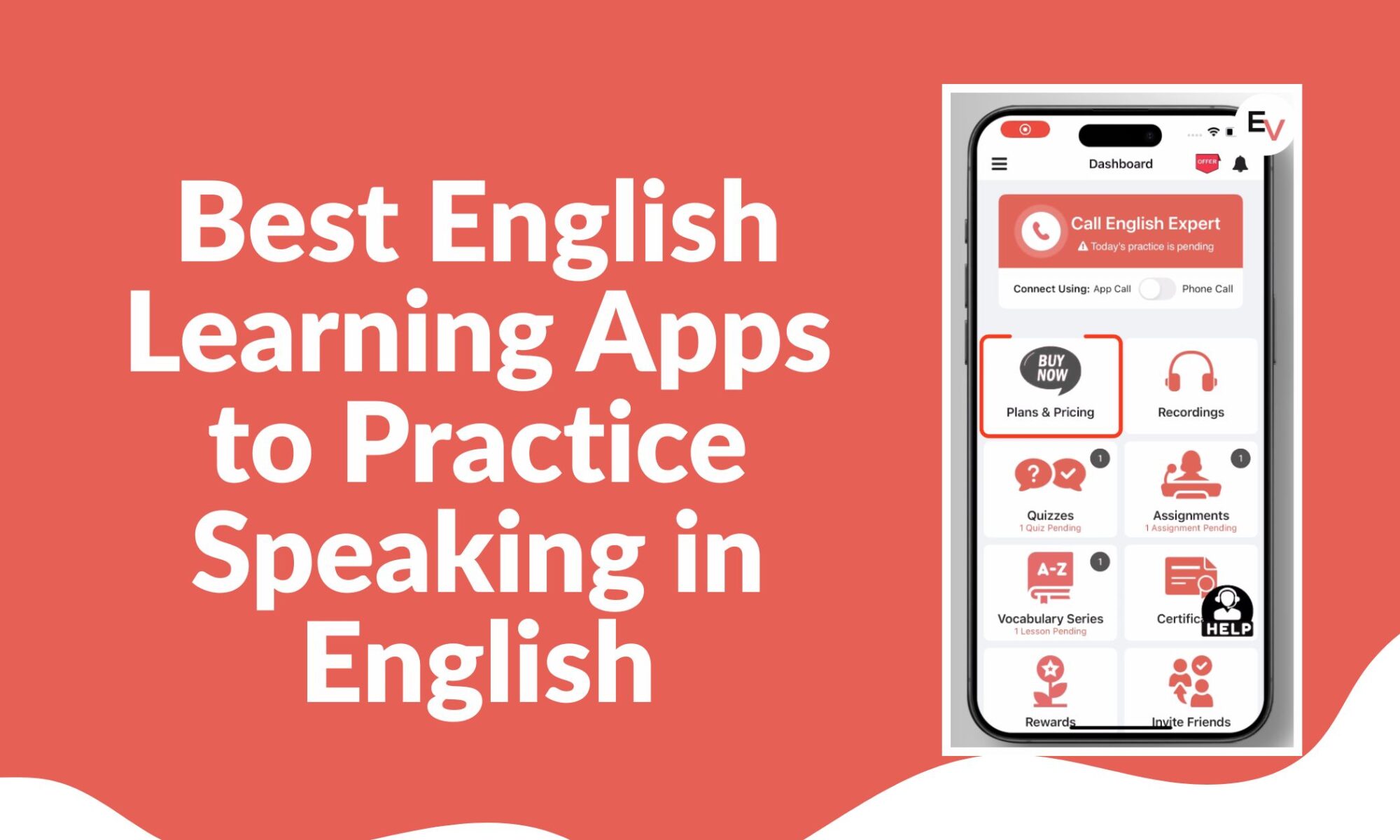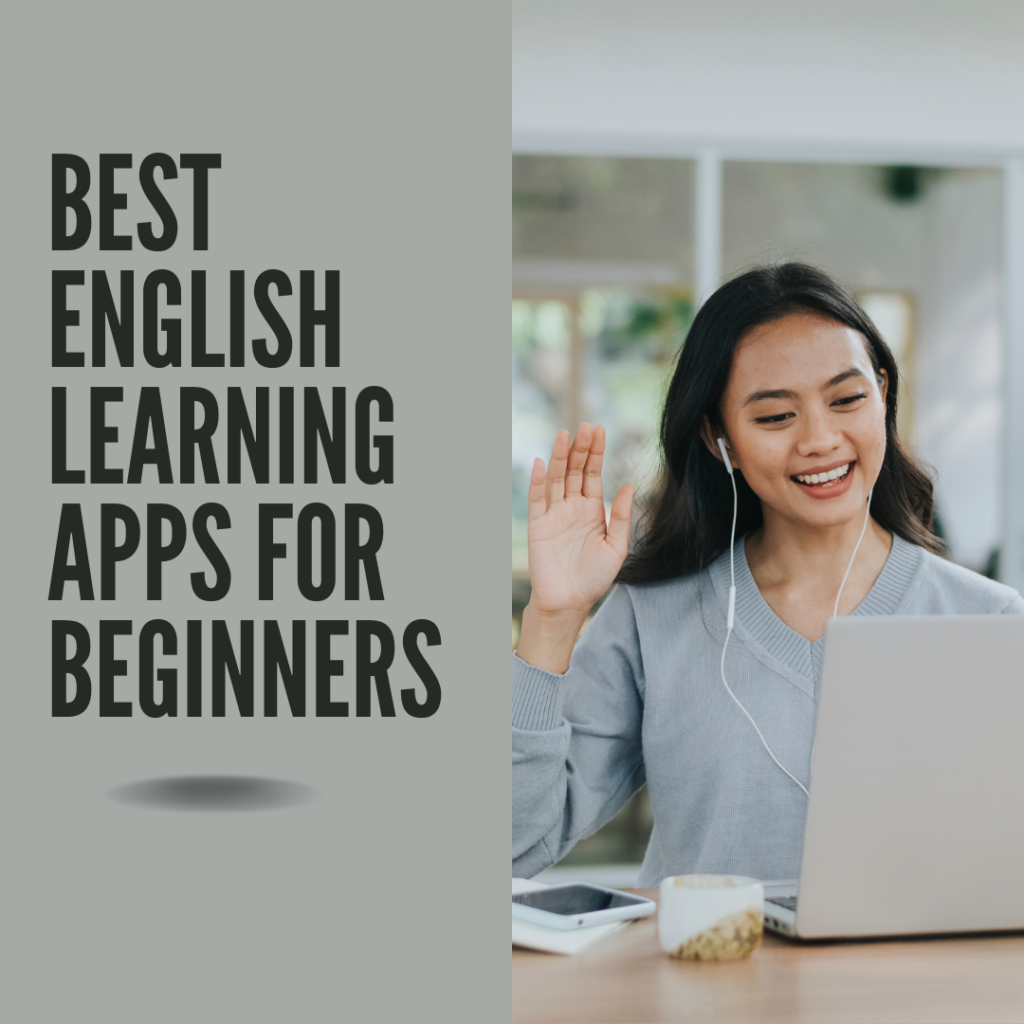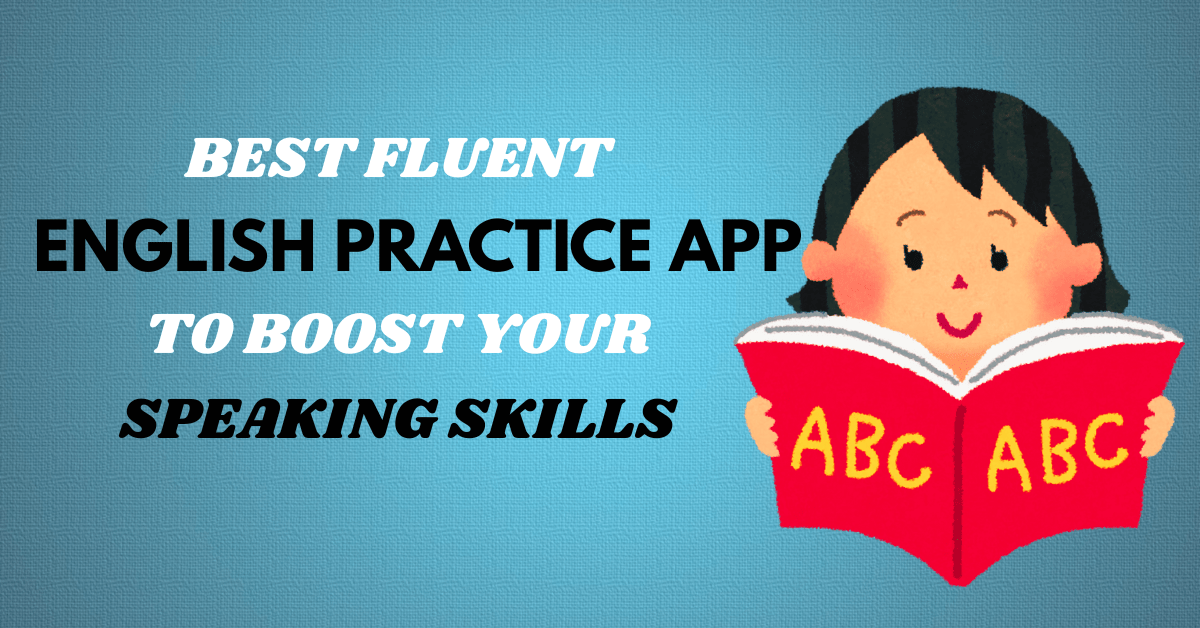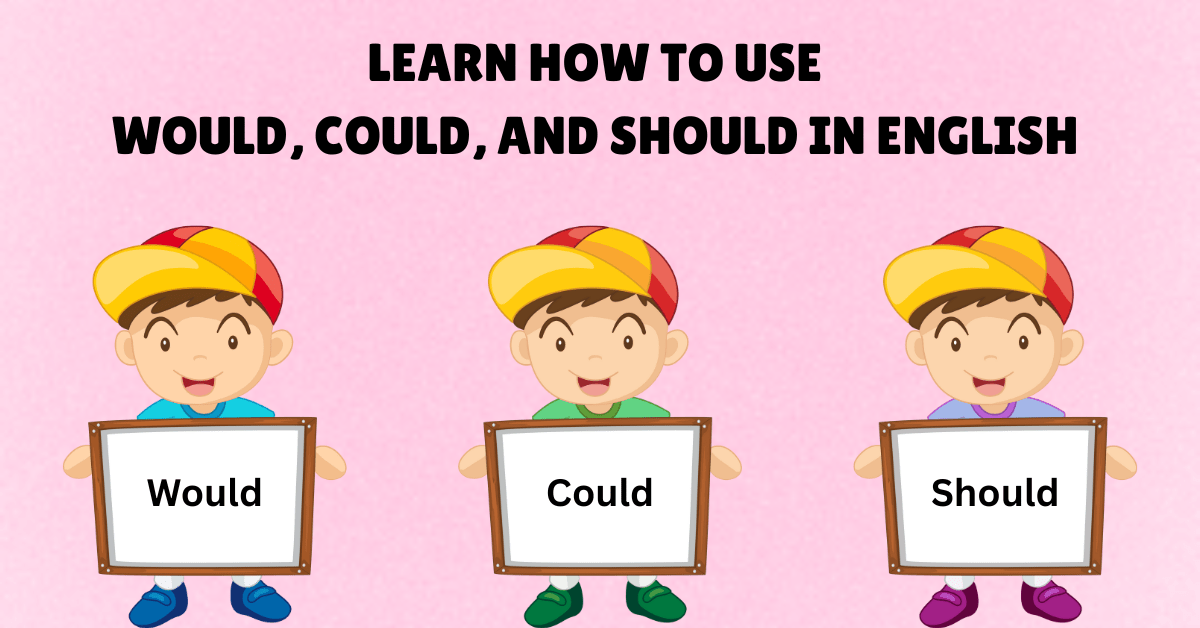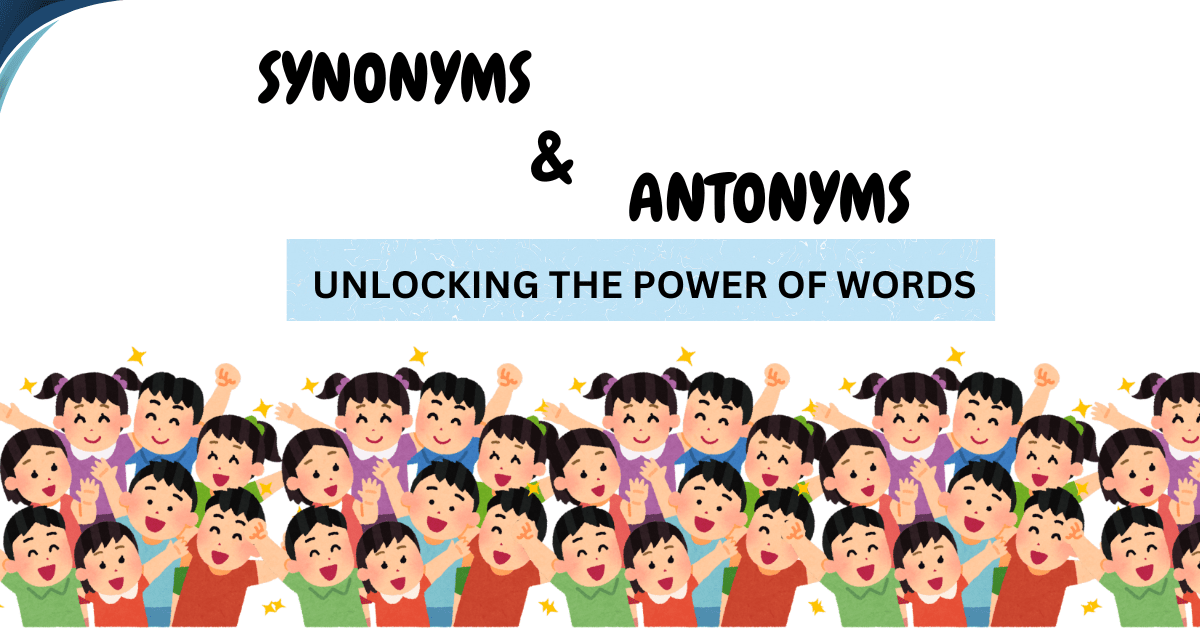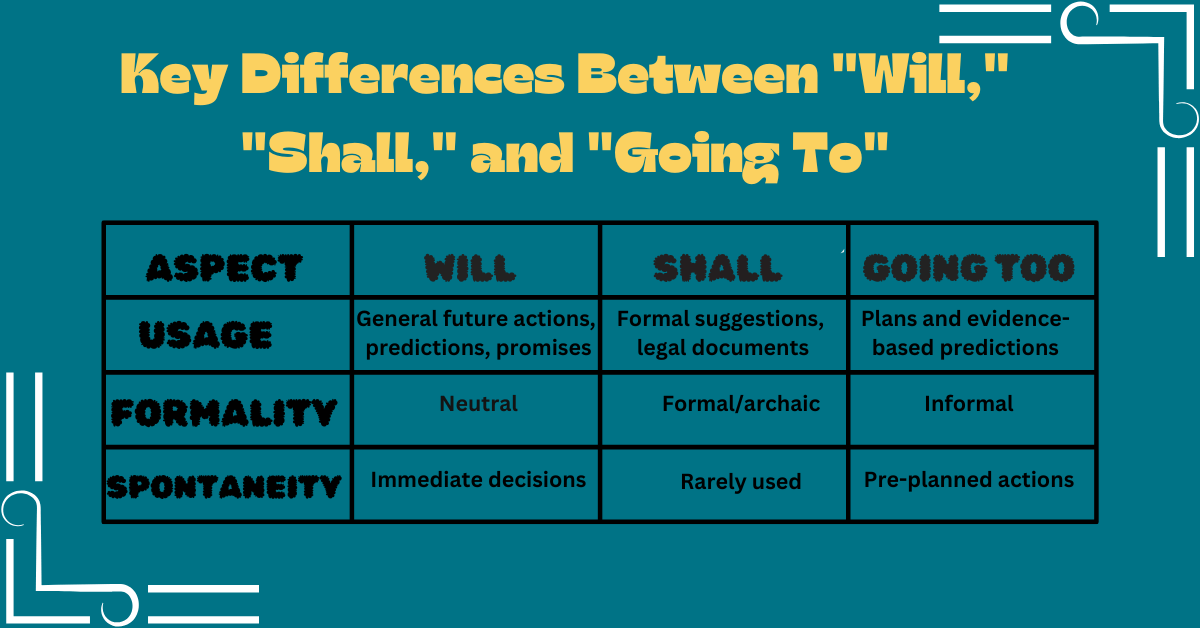Speaking English fluently is no longer a luxury—it has become a necessity in today’s global world. Whether you want to speak confidently at work, crack the IELTS speaking test, travel abroad, or hold smooth daily conversations, choosing the Best English speaking practice apps can completely change your learning journey.
Earlier, improving spoken English meant joining expensive coaching centres or memorising grammar rules. Today, technology has simplified everything. With just a smartphone, you can practise spoken English anytime, anywhere, receive instant AI feedback, and build confidence step by step. That’s why English speaking practice apps in 2026 are becoming the most effective way to achieve fluency.
In this blog, we review and compare the Best English Speaking Practice Apps to help you choose the one that matches your goals.
Why Use the best English-Speaking Practice App?
Spoken English cannot be mastered by reading books alone. Fluency comes from:
- Speaking regularly
- Listening to real conversations
- Making mistakes and correcting them
English-speaking practice apps recreate real-life situations where you can practise without fear of judgment. They provide structured speaking opportunities, instant corrections, and gradual confidence-building—something traditional learning methods often lack.
Top English-Speaking Practice Apps
1. EngVarta – Best for Real-Life Speaking Confidence
If you understand English but hesitate while speaking, EngVarta can be a game changer. This app connects you with live English experts for real conversations anytime between morning and midnight.
Unlike theory-based apps, EngVarta focuses purely on spoken English practice, helping you think directly in English instead of translating from your native language.
Key Features:
- Live one-on-one conversations with English experts
- Real-time mistake correction
- Flexible practice timings
Best For:
Beginners, working professionals, and anyone struggling with confidence while speaking English.
Why we recommend it:
EngVarta ranks among the Best English Speaking Practice Apps in India because it focuses on real-life spoken English, building your confidence to speak naturally at work, interviews, or social situations without feeling nervous.
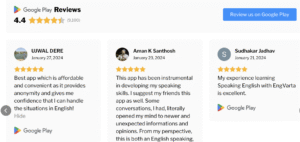
🔗 Download EngVarta:
Download for Android | Download for iOS
2. FixoLang – Best for IELTS Speaking Preparation
Preparing for IELTS speaking can be stressful, but FixoLang makes it structured and exam-focused. The app simulates the actual IELTS speaking test environment using cue cards and timed responses.
Its AI evaluates your answers instantly and provides a predicted IELTS band score, helping you identify weak areas before the real exam.
Key Features:
- IELTS-style speaking mock tests
- Cue card practice with time limits
- AI-based band score prediction
Best For:
IELTS aspirants aiming for a high speaking band.
Why we recommend it:
FixoLang stands out as one of the Best English Speaking Practice Apps for IELTS aspirants who want realistic practice, targeted feedback, and confidence to perform well on exam day.
Trusted by IELTS learners for real speaking practice
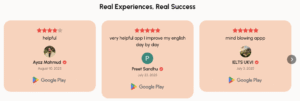
Download FixoLang:
Download for Android | Download for iOS
3. BoldVoice
Pronunciation plays a major role in clear communication. BoldVoice emphasizes pronunciation and accent training through lessons crafted by expert accent coaches
The app uses IPA phonetics, mouth diagrams, and AI feedback to help you correct pronunciation errors before they become habits.
Key Features:
- Accent and pronunciation coaching
- AI-powered speech feedback
- Stress, intonation, and sound training
Best For:
Learners who want clearer pronunciation and a more natural English accent.
4. HelloTalk
HelloTalk offers a unique language exchange experience by connecting you with native English speakers worldwide. You can Messaging, audio messages, video chats with proficient speakers, expressions, and sayings. Learners looking for informal, impromptu conversations.
Although it doesn’t follow a fixed syllabus, it provides authentic, real-world English exposure.
Key Features:
- Conversations with native speakers
- Cultural learning, slang, and idioms
- Voice and video chat options
Best For:
Intermediate learners who want natural conversations and cultural understanding.
5. Promova
If you’re a beginner or have a busy schedule, Promova is a great option. It offers short, bite-sized lessons focused on everyday conversation topics like travel, shopping, and introductions.
Key Features:
- Daily mini-lessons
- Practical vocabulary and dialogues
- Easy-to-use interface
Best For:
Beginners and learners who want consistent daily English practice.
Comparison of Best English-Speaking Practice Apps
| App Name | Best For | Key Features | Ideal Users |
| EngVarta | Real-life speaking fluency | Live calls with English experts, real-time corrections, confidence-building conversations | Working professionals, students, beginners who hesitate while speaking |
| FixoLang | IELTS Speaking preparation | IELTS-style mock tests, cue cards, AI evaluation, predicted band score | IELTS aspirants aiming for high speaking bands |
| BoldVoice | Pronunciation & accent | Hollywood accent coaching, IPA-based lessons, AI pronunciation feedback | Learners focusing on clarity, accent, and pronunciation |
| HelloTalk | Cultural immersion & conversation | Chat, voice notes, video calls with native speakers, slang & idioms | Learners who want natural, informal conversations |
| Promova | Daily practice & beginners | Bite-sized lessons, everyday vocabulary, realistic dialogues | Beginners, busy learners, casual English users |
Speak English Confidently with the Right App
Fluency is not built overnight. It is built with consistent practice, exposure to real conversations, instant feedback, and gradual confidence. These Best English Speaking Practice Apps for 2026 give you exactly that – a safe, structured, and effective path to become a fluent English speaker.
Whether your goal is to ace IELTS, speak confidently in meetings, build an international accent, or hold casual conversations fluently, these apps make it achievable. Among them, EngVarta and FixoLang stand out for building practical fluency and targeted IELTS speaking skills, while BoldVoice, HelloTalk, and Promova complement your journey with pronunciation mastery, cultural immersion, and vocabulary building.
Ready to start your journey?
Practice today with these Best English-Speaking Practice Apps and transform your hesitation into fluent, confident expression in every sphere of life.
Conclusion
Proficiency in English now focuses on applying the language with confidence in everyday situations rather than just memorizing rules. With the right English-speaking practice app like EngVarta, you can overcome hesitation, improve pronunciation, and communicate clearly without fear. EngVarta connects you with live English experts for real conversations, making learning flexible, interactive, and personalized so you can practise anytime and anywhere.
Whether you’re preparing for IELTS, aiming to speak confidently at work, refining your accent, or simply wanting smooth everyday conversations, apps like EngVarta offer practical tools to help you succeed. From live expert conversations and AI-driven feedback to cultural immersion and bite-sized lessons, each app supports a different stage of your learning journey.
Consistency is the real key. Choose the app that matches your goals, practise regularly, and trust the process. With daily effort and the right support from EngVarta, fluent and confident English is not just possible—it’s inevitable.
Frequently Asked Questions
-
What’s the difference between a general English learning app and the Best English-Speaking Practice Apps?
General English apps focus on grammar and vocabulary, while the Best English-Speaking Practice Apps provide real conversation practice, pronunciation training, and fluency-building tools.
-
How do spoken English practice apps remove hesitation while speaking?
Spoken English practice apps like EngVarta connect you with live experts, helping you practise regularly, gain feedback, and speak without hesitation over time.
-
Which IELTS speaking app is best for daily cue card practice?
FixoLang is the best IELTS speaking app for daily cue card practice with instant band score predictions and AI feedback to improve your performance systematically.
-
Can an English fluency app really help me speak confidently in meetings?
Yes, using an English fluency app like EngVarta helps you practise real conversations daily, build vocabulary, and speak confidently in professional meetings.
-
What are the Best English-Speaking Practice Apps to improve fluency quickly?
The Best English-Speaking Practice Apps for fluency include EngVarta for daily live calls, FixoLang for IELTS speaking practice, and BoldVoice for accent clarity.


